A pregnant cat usually carries three to five kittens. The growing fetuses, along with the placentas, are all formed by the nutrients supplied by the mother cat's body.
It's no wonder that pregnant cats develop a healthy appetite.
Once the kittens are born, the lactating mother cat has a vital role. She provides them with the essential nutrients for their crucial early weeks of development.
Each kitten needs to double its weight in about a week. By the age of five weeks, they should quadruple that weight. The mother cat faces a significant challenge.
There are several cat foods made especially for kittens and mother cats. They are often called "growth formulas."
These foods have a higher protein content, which aids in building the kittens' body tissues. They also contain more fat and calories.
Use the best cat food you can find. Better nutrition is vital for the health of the mother cat and her kittens. It also lays a foundation for their future mental and physical well-being.
The Pregnant Queen
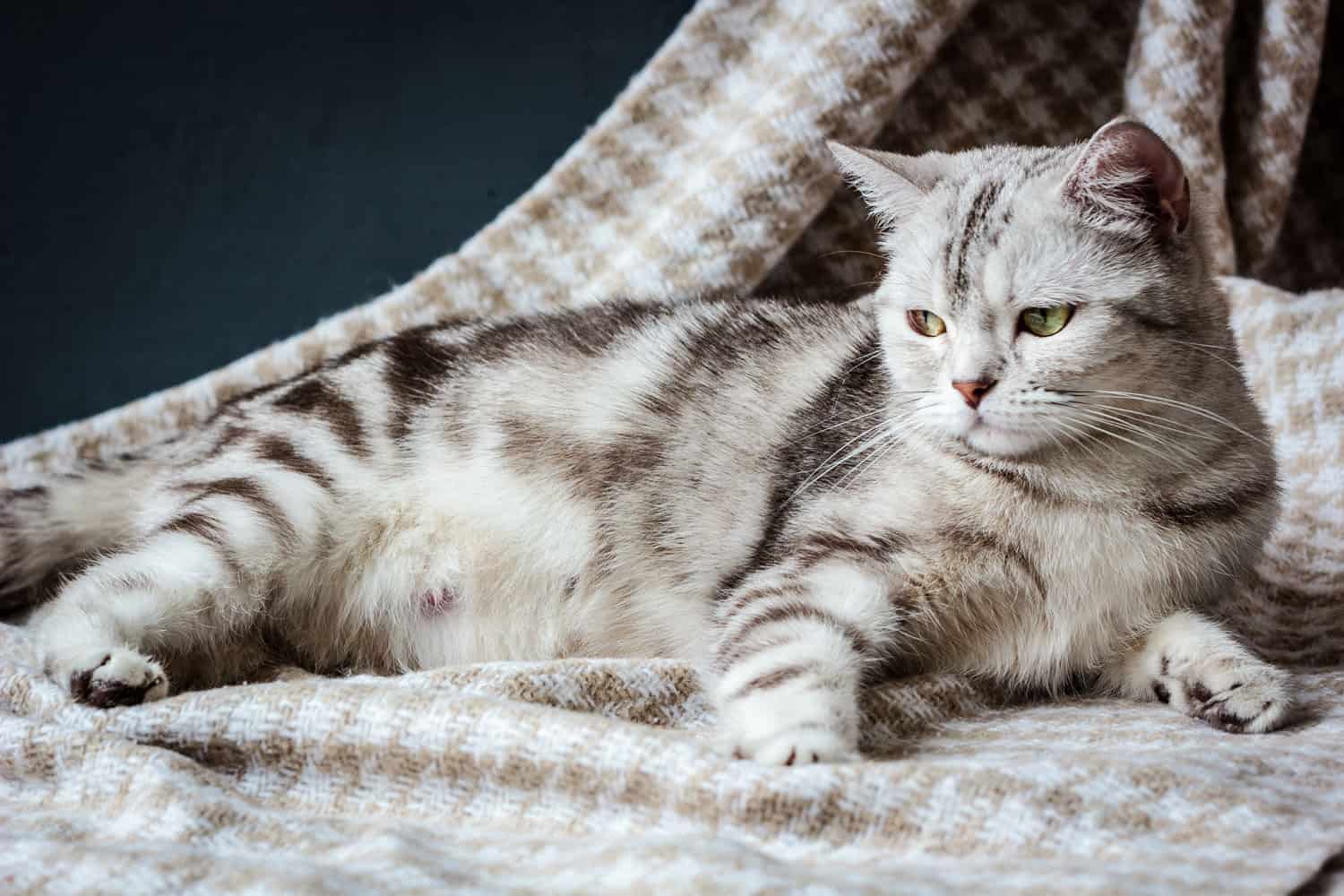
During pregnancy, provide your cat with wholesome quality nutrition. The pregnant queen requires roughly 25 percent more calories, protein, and other essential nutrients than she normally does.
Your cat may develop too much of an appetite so take care not to overfeed her. Overfeeding during pregnancy can lead to excessive weight gain.
Obesity can create a serious problem, as the kittens are likely to be larger than normal and the birth process may become complicated.
If you think that your pregnant cat may be overweight, don't start a weight control program without consulting your veterinarian (this is true for all cats but especially crucial for pregnant females).
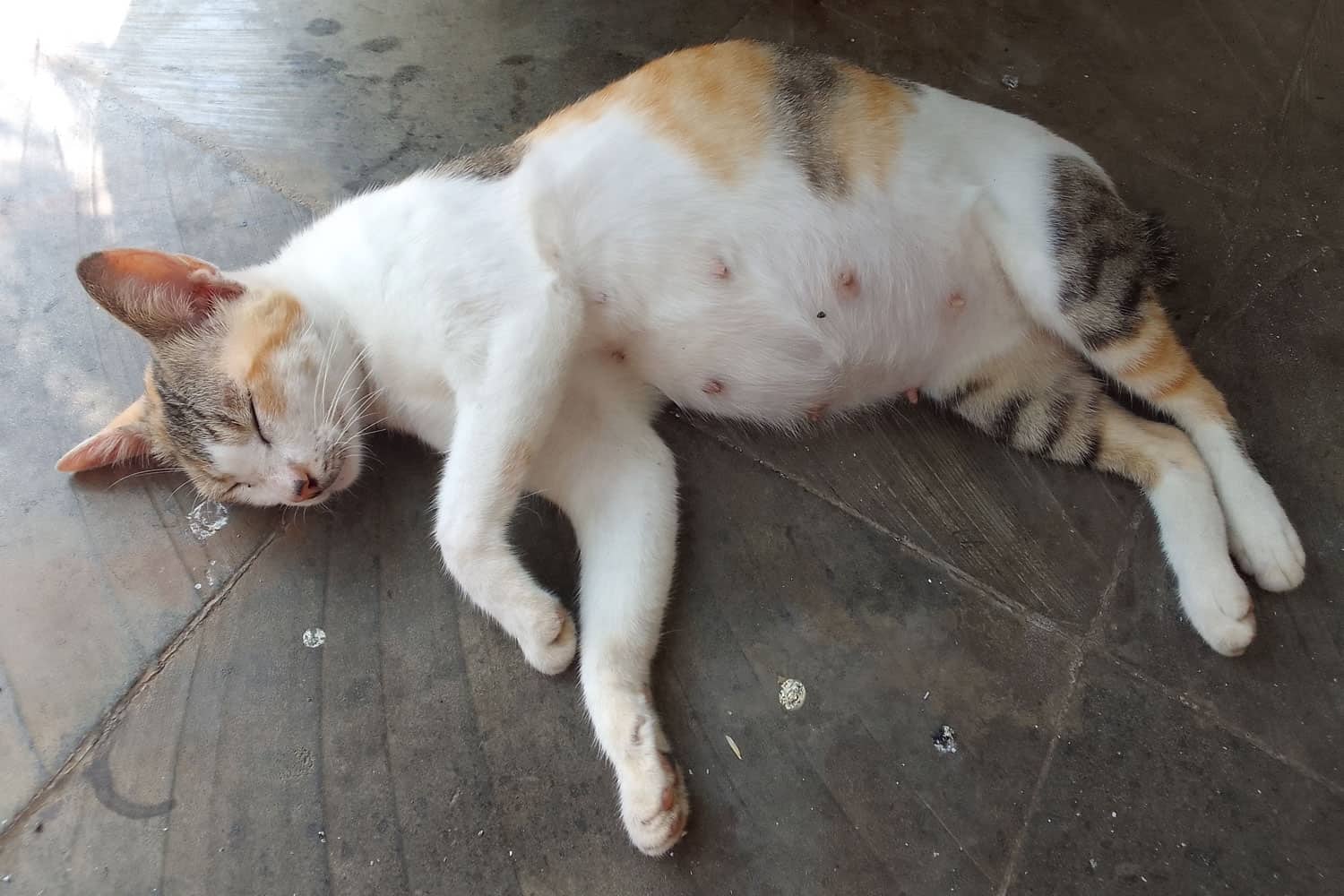
Feed quality cat food and do not supplement the diet with any vitamins or minerals unless your vet specifically prescribed them for the term of pregnancy. Unnecessary supplements may actually harm both mother and kittens.
During the last week or two of pregnancy, as the mother's belly becomes heavy with the kittens, she may need to have many small meals throughout the day.
A day or two before the birth, the queen usually stops eating altogether - this is a good sign that delivery is approaching. If this aversion to food persists for more than a couple of days, consult your vet.
SIGN UP FOR THECATSITE'S EMAIL UPDATES >
The Lactating Mother
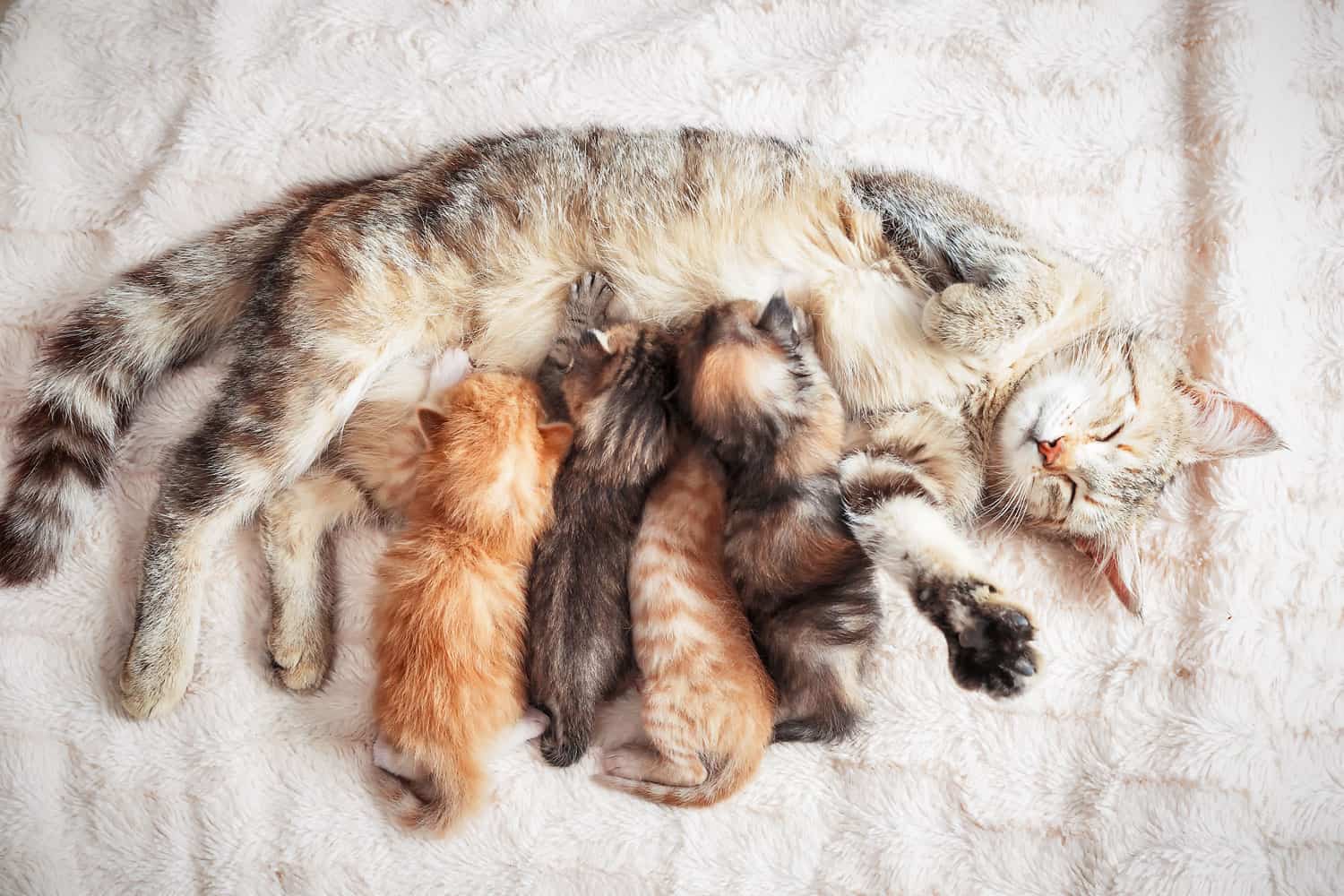
After the kittens are born and begin to suckle, the mother cat's food intake is likely to increase by two to four times, depending on the number of kittens and their growth stages.
Providing those tiny kittens with all the calories and other nutrients they need can be exhausting for the mother and she may lose weight even if provided with plenty of food.
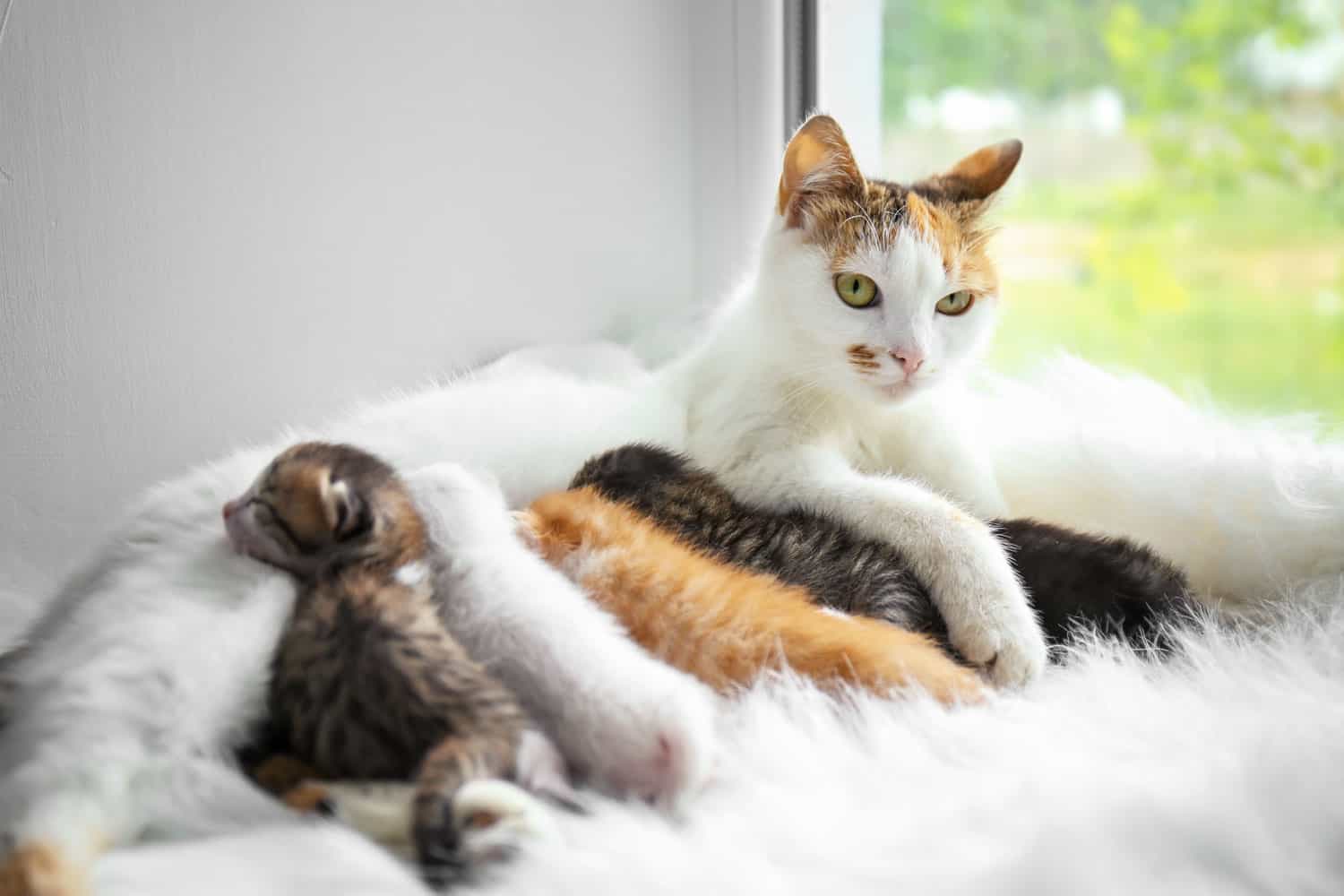
It is best not to limit the lactating queen's food intake. Free feed premium quality cat food that is labeled "growth formula," but do not supplement the mother's food with any vitamins or minerals, unless your vet specifically tells you to.
Remember to have lots of freshwaters available for the mother. The lactating cat loses a lot of fluids in the milk and needs constant replacement to avoid dehydration.
SIGN UP FOR THECATSITE'S EMAIL UPDATES >
You may also want to read these posts:
- How Old Do Kittens Have To Be To Leave Their Mother?
- Weaning: How To Get Your Kittens To Eat On Their Own
Comments? Leave them using the form below. Questions? Please use the cat forums for those!
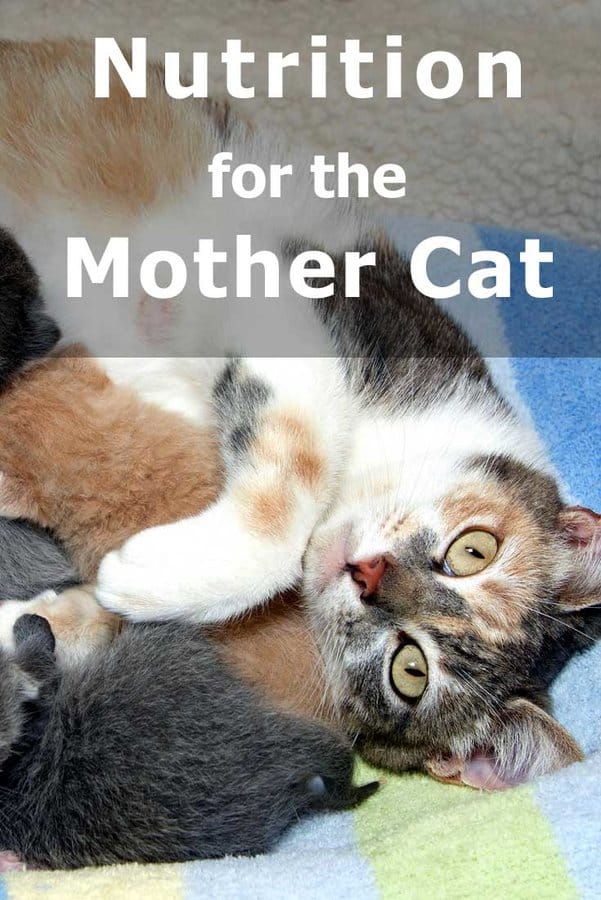
Note: We may get commissions for purchases made through links on this page.

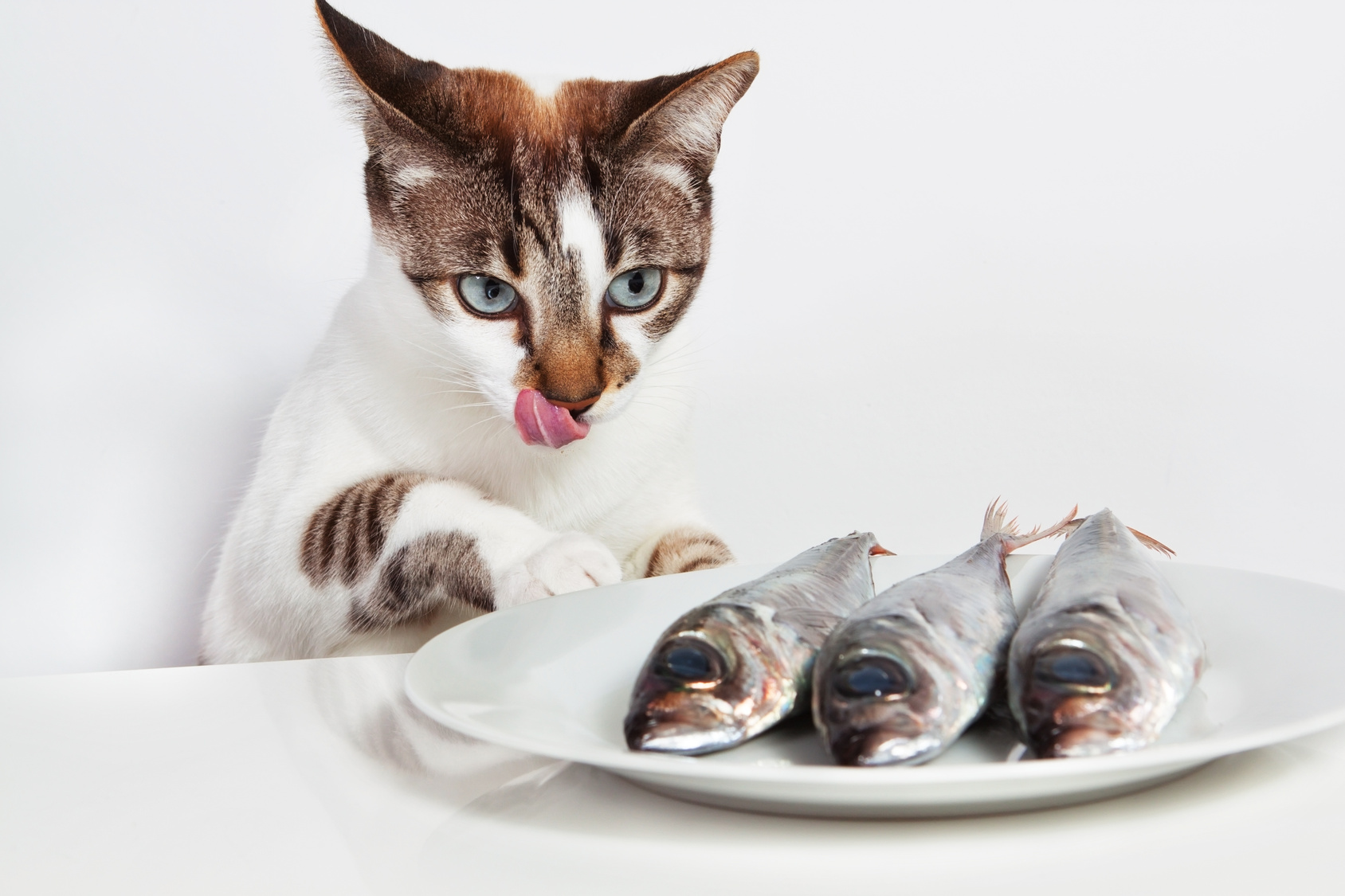
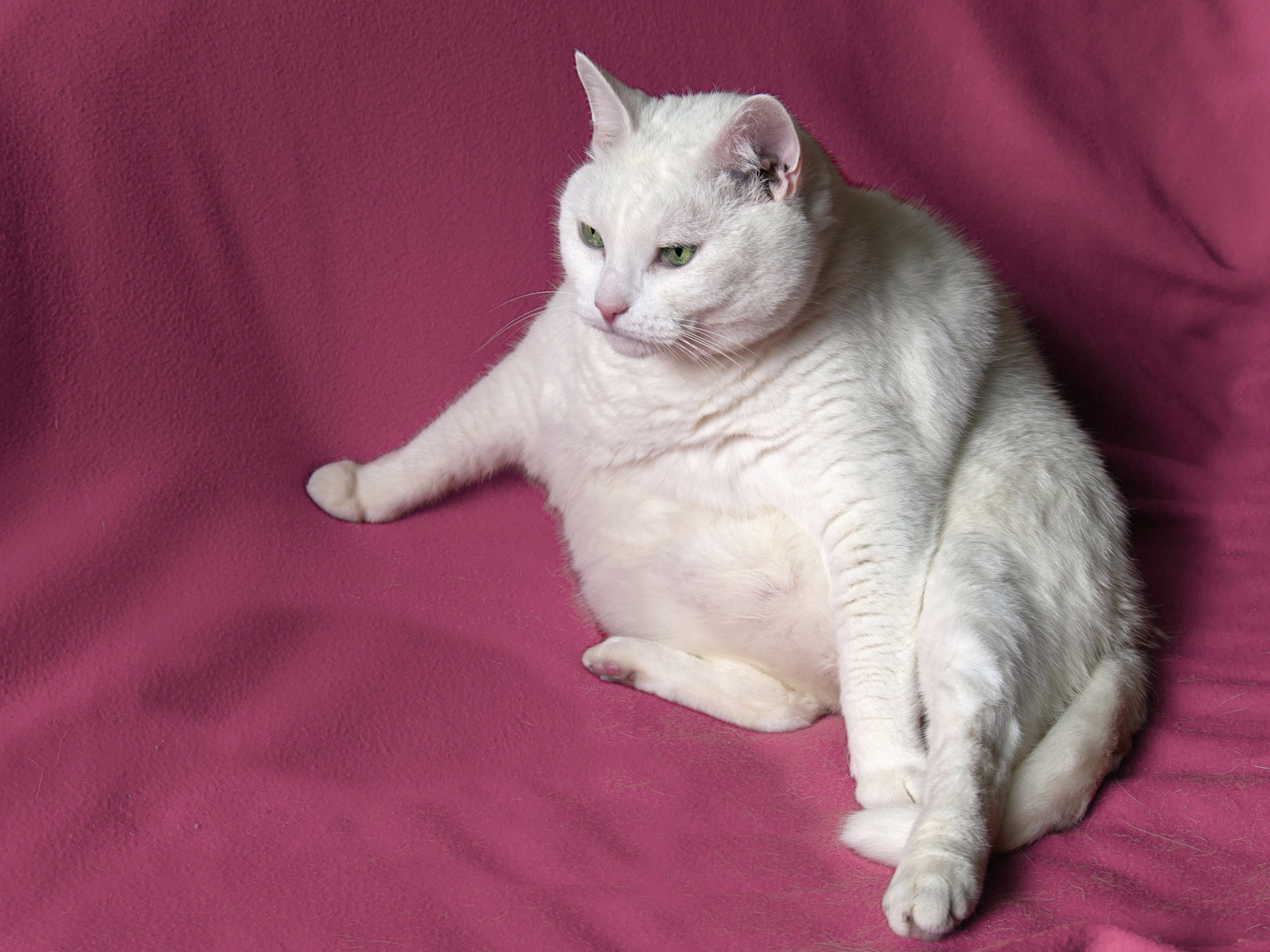
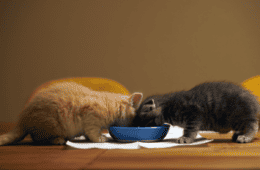
One comment on “Nutrition For The Mother Cat [A Guide]”